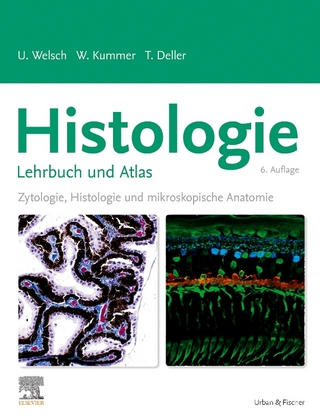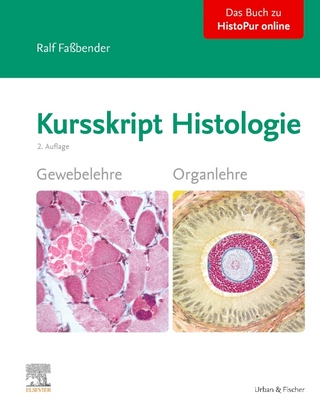
How to Prepare the Egg and Embryo to Maximize IVF Success
Cambridge University Press (Verlag)
978-1-316-62177-6 (ISBN)
This comprehensive review of the factors that affect the harvesting and preparation of oocytes and the management of embryos will allow practitioners to make evidence-based decisions for successful IVF. The book reviews and re-considers the value of strategies and outcomes in the management of fertility and conception rates, centred on the production of oocytes, and successful development of the embryo. Authored by leading experts in the field, chapters engage with treatments and strategies that affect the production of oocytes and embryos, optimizing outcomes in the management of female fertility, conception rates, and live births. This vital guide covers controlled ovarian hyperstimulation, the role of AMH in determining ovarian reserve, and primary stimulation agents and the use of adjuncts. Integral for all clinicians and embryologists working in reproductive medicine units, readers are provided with evidence-based, comprehensive advice and review of all factors affecting the management of oocytes and the embryo that are vital for successful IVF cycles.
Gabor Kovacs is a reproductive gynecologist, with nearly forty years of experience in IVF. He is an Honorary Life Member of The International Federation of Fertility Societies (IFFS), Honorary Life Member of The Fertility Society of Australia, and received the Distinguished Alumni Award, Monash University, and Distinguished Service Medal, of The Royal Australian and New Zealand College of Obstetricians and Gynaecologists. He has edited 14 books for Cambridge, and this book is one of a series of four books: How to Improve Preconception Health to Maximize IVF Success (Cambridge, 2018); Male and Sperm Factors that Maximize IVF Success (forthcoming), and How to Prepare the Endometrium to Maximize Implantation Rates and IVF Success (forthcoming). Anthony Rutherford has worked in reproductive medicine since 1985, establishing one of the largest National Health Service IVF units in the UK in Leeds in 1991. Mr Rutherford was one of the first to introduce vaginal ultrasound and the large-scale use of GnRH analogues in IVF protocols into the UK. He has been actively involved nationally with over seventeen years as a Board member of the British Fertility Society, including as past chairman in 2009 to 2011, and in further education through the Royal College of Obstetricians and Gynaecologists. He is a founding member of the British Society of Gynaecological Endoscopy, and currently he is a Board member of the Human fertilization & Embryo Authority, the UK IVF regular. David K. Gardner is a world-renowned embryologist with over thirty-five years' experience. He is a Redmond Barry Distinguished Professor in the School of BioSciences at the University of Melbourne, the Scientific Director of Melbourne IVF, and a Fellow of the Australian Academy of Science. He is the current President of the Alpha, representing Scientists in Reproductive Medicine, and Section Editor of Reproductive BioMedicine Online. He has edited 15 books on human IVF and embryology, is a pioneer of human blastocyst culture, and is one of the most highly cited scientists in reproductive biology and reproductive medicine.
1. Physiology of ovulation Colin Duncan; 2. In vivo oocyte development Helen Picton; 3. Assessment of ovarian reserve Scott M. Nelson, Reshef Tal and David Seifer; 4. Natural cycle and minimal stimulation IVF Jacqueline R. Ho and Richard J. Paulson; 5. GnRH-agonists and –antagonists: which, when and how? Georg Griesinger and Efstratios M. Kolibianakis; 6. The gonadotropins in IVF: r-hFSH or u-hFSH, biosimilars, regimens, doses, which protocol Colin M. Howles; 7. Controlled ovarian stimulation strategies for IVF and programing cycles with steroid pretreatment Richard Fleming; 8. Monitoring the stimulated IVF cycle John L. Yovich; 9. Preventing ovarian hyperstimulation syndrome Michele Kwik; 10. Oocyte recovery Anthony Rutherford; 11. The use of DHEA to improve oocyte quality Ben Kroon; 12. Implications of polycystic ovary syndrome on oocyte quality Zi-Jiang Chen and Linlin Cui; 13. The use of melatonin to improve oocyte development Shavi Fernando Luk Rombauts; 14. The use of LH supplements to improve the response to ovarian stimulation Rachael Rodgers and William Ledger; 15. Growth hormone as an adjunct to controlled ovarian hyperstimulation for IVF Rui Wang, Roger Hart and Robert J. Norman; 16. Mitochondrial transfer technology for improving older eggs J. Szeptycki, D. Nayot and R. F. Casper; 17. In-vitro maturation Roger Hart and Melanie Walls; 18. Oocyte banking through vitrification Zsolt Peter Nagy, Ching-Chien Chang and Daniel B. Shapiro; 19. Fertilization and complete fertilization failure in human IVF E. A. Seidler, L. A. Murphy, D. A. Vaughan and Denny Sakkas; 20. Physiology and culture of the early human embryo David K. Gardner and Denny Sakkas; 21. Use of medium supplements for oocyte and embryo culture Cecilia Sjoblom and Harriet Swearman; 22. Assisted hatching – fresh and frozen Katalin Kanyo, Sandor Cseh and Janos Konc; 23. Assessing embryo morphology to enhance successful selection and transfer Basak Balaban and David K. Gardner; 24. Evaluation of embryo quality: time-lapse imaging to assess embryo morphokinesis Belén Aparicio-Ruiz and Marcos Meseguer; 25. Metabolomic screening of embryos to enhance successful selection and transfer Paul J. McKeegan and Roger G. Sturmey; 26. Preimplantation genetic screening of embryos for IVF Joyce Harper and Carmen Rubio; 27. Cleavage stage or blastocyst transfer? E. G. Papanikolaou and T. Chartomatzidou; 28. Embryo transfer technique Ragaa Mansour; 29. Vitrification of embryos for IVF Juergen Liebermann; 30. On the strategy of 'freezing only' embryos Bruce S. Shapiro and Forest C. Garner; 31. Fertility preservation: eggs, embryos and ovarian tissue, and the use of Gnrh analogues to protect fertility Richard A. Anderson; 32. Stimulating the poor responder Yadava B. Jeve and Harish M. Bhandari.
| Erscheinungsdatum | 16.01.2019 |
|---|---|
| Verlagsort | Cambridge |
| Sprache | englisch |
| Maße | 155 x 234 mm |
| Gewicht | 680 g |
| Themenwelt | Medizin / Pharmazie ► Medizinische Fachgebiete ► Gynäkologie / Geburtshilfe |
| Studium ► 1. Studienabschnitt (Vorklinik) ► Histologie / Embryologie | |
| ISBN-10 | 1-316-62177-4 / 1316621774 |
| ISBN-13 | 978-1-316-62177-6 / 9781316621776 |
| Zustand | Neuware |
| Haben Sie eine Frage zum Produkt? |
aus dem Bereich


